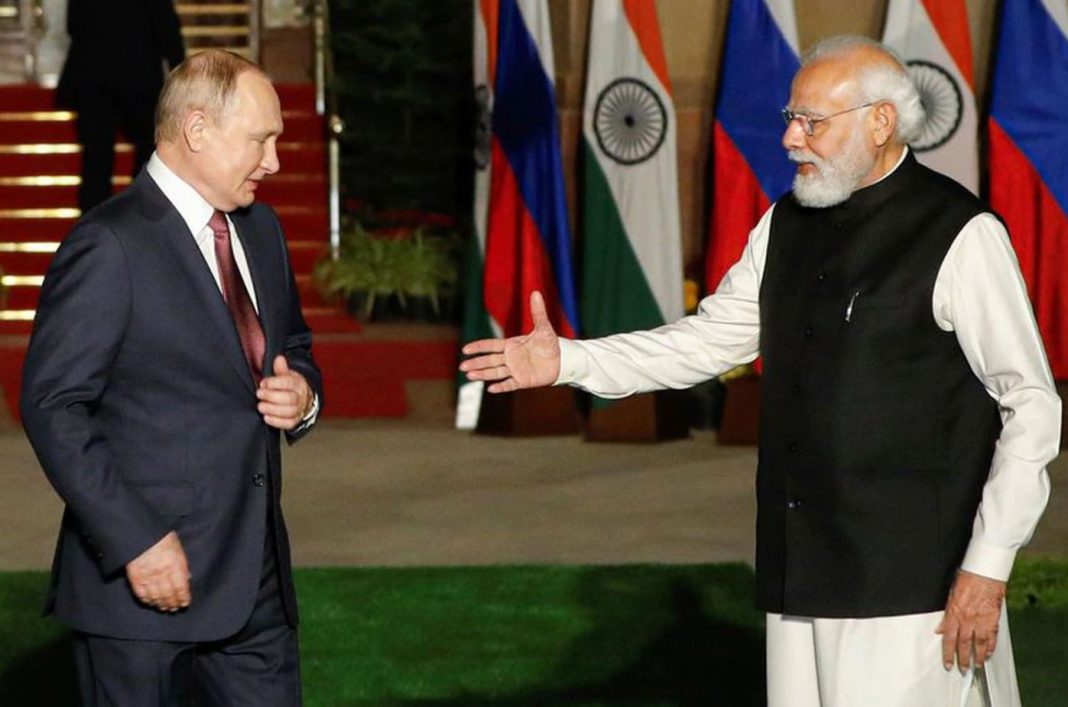Following Russia’s invasion of Ukraine, a significant increase in Indian oil imports could put New Delhi’s national security at “great risk,” according to senior US administration officials. The United States is preparing to step up enforcement of sanctions against Moscow as a result of the invasion.
While the present US sanctions on Russia do not preclude other countries from purchasing Russian oil, the warning increases the possibility that the United States may seek to limit other countries’ imports of Russian oil to normal levels in the future.
According to the US source, the statement comes before of Russian Foreign Minister Sergei Lavrov’s two-day visit to New Delhi, which is now underway, and during the visit of US Deputy National Security Advisor for Economic Affairs Daleep Singh, who is currently in the country.
India’s refiners, the world’s third largest oil importer and user, have been buying Russian oil via spot tenders since the conflict began on February 24 and taking advantage of low discounts while other purchasers shied away from doing business with the Russians. Approximately 13 million barrels of Russian oil have been acquired by India since Feb. 24, compared to approximately 16 million barrels in the whole year 2021.
“The United States has no issue to India purchasing Russian oil as long as it does so at a discount and does not dramatically increase its purchase from past years,” said the person, who requested anonymity to discuss the matter. “Some growth is permitted,” stated the source, who did not provide any other information.
According to a State Department spokeswoman, the department is aware of discussions taking place between Russia and India on the purchase of oil. In a statement, the spokesman said, “We continue to engage our allies in India and throughout the globe on the significance of a strong collective response, including robust sanctions, to force the Kremlin to halt its terrible war of choice against Ukraine as soon as possible.”
According to the spokeswoman, the Biden administration is working with India and European nations to offset the effect of Russia’s invasion of Ukraine on energy markets while also supporting initiatives to decrease reliance on Russian energy.
The United States Treasury Department refused to comment, while the White House’s National Security Council did not immediately reply to demands for comment after being contacted.
US sanctions are limiting Russia’s capacity to get petroleum to market, despite the fact that the country produces around one barrel of oil for every ten barrels produced worldwide. As a result of sanctions and buyer hesitation, the International Energy Agency in Paris estimates that Russian crude and processed products will be removed from global markets by April, resulting in a loss of 3 million barrels per day.
As far as Washington is concerned, India may settle its trade with Russia in rupees or continue to pay in dollars as long as the transactions are sanction-compliant and take place through approved organisations, according to the source.
India is developing a method to settle commerce with Russia, which may include the use of rupees as a form of payment.
“Whatever they are paying, whatever they are doing, it must be in accordance with the sanctions in place at the time. If they do not, they are putting themselves in grave danger “, according to the source.
“As long as they are complying with sanctions and do not considerably increase purchases, we are OK,” the source added of the United States.
Russia is facing an onslaught of international sanctions, led by Western countries, aimed at isolating it from the global economy. These sanctions include the country’s central bank being barred from using the SWIFT global bank messaging system and restricting its ability to conduct business internationally.
The White House has imposed sanctions on Russian businesses and people, among others, with the goal of undermining Moscow’s economic growth.
The Biden administration has also prohibited the United States from importing any Russian energy products, including oil. However, the administration has so far refrained from targeting Russia’s oil and gas shipments to other nations while it assesses the potential consequences for global oil markets and US motor gasoline prices.
New Delhi has urged for an early cessation of hostilities in Ukraine, but it has refrained from overtly condemning Moscow’s activities in the country. It has refrained from voting on a number of United Nations resolutions related to the conflict.
This month, US President Joe Biden said that India’s actions against Russia were “rather dubious.”
According to the official from the United States, India could take use of the procedures established by the United States to exclude energy transactions and import oil from ‘permitted businesses.’
“Over the coming few days and weeks, we will be increasing up the enforcement of punishments against those who violate them. We are advising everyone, wherever in the globe, to make certain that they are in compliance with sanctions… this is the message to all of humanity “…..
The US sanctions have been lifted until June 24 in order to facilitate the settlement of energy transactions with the Central Bank of Russia.

